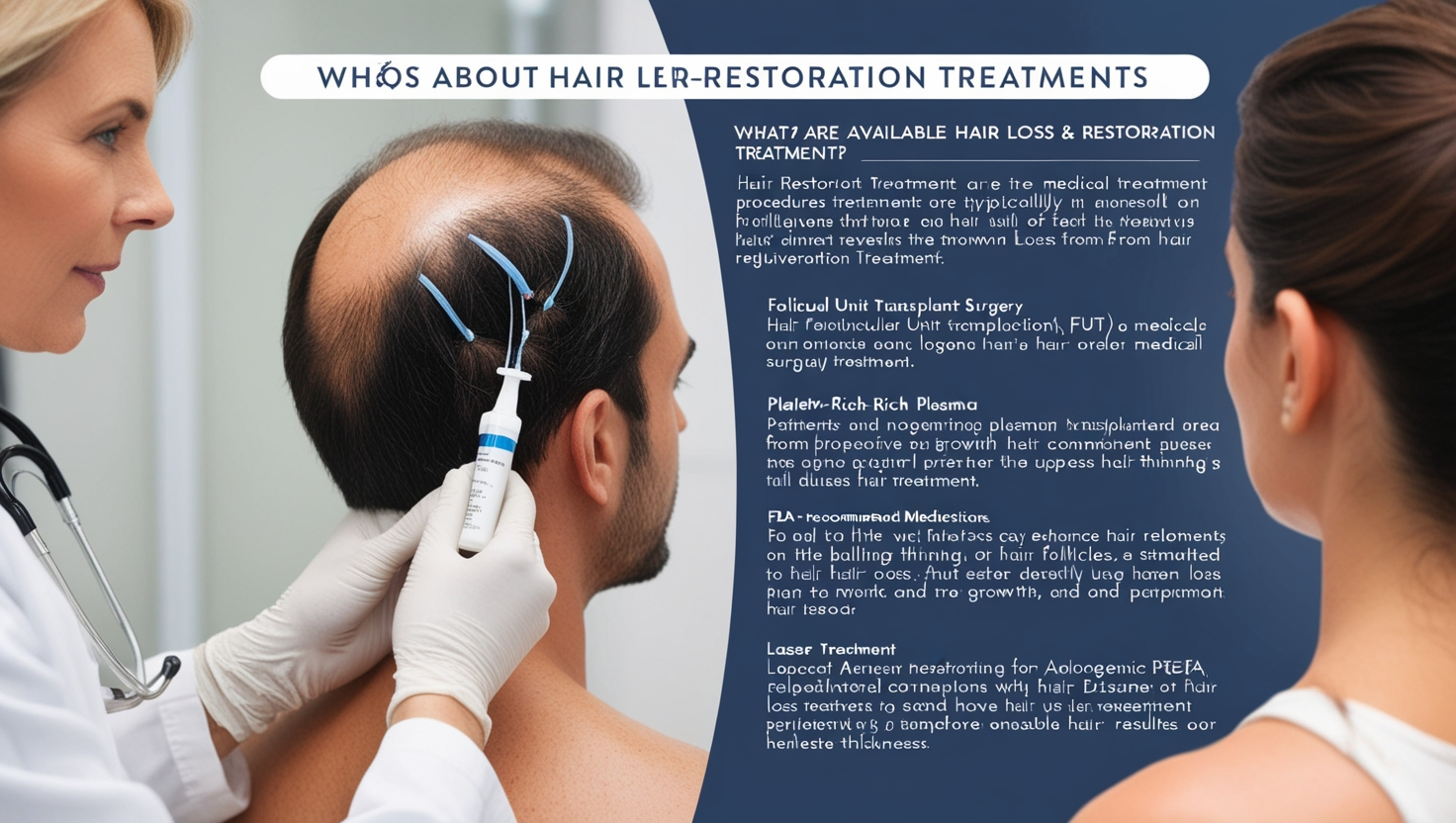
Hair restoration treatments can help individuals who suffer from hair loss or thinning. With several treatment options available, you should understand its usefulness, how it works, and the expected results of a procedure before you choose it. Here are answers to common questions about hair rejuvenation treatments:
What Are The Available Hair Loss Restoration Treatment?
Hair loss treatment procedures are typically minimally invasive but can be a medical or surgical treatment. Individuals can choose hair transplant surgery like the follicular unit transplantation (FUT) method. This involves the removal of hair follicles from the donor area and then transplanting them to the balding areas. They may also opt for a platelet-rich plasma procedure where the patient’s blood is concentrated and injected into the scalp to stimulate the hair follicles. FDA-recommended medications may enhance regrowth and prevent hair loss. Another kind of treatment is laser treatment, where laser devices are used to improve the health of the follicles, density, and thickness.
Who Is Eligible for Hair Loss Restoration?
You are eligible for hair loss treatments if you suffer from hair loss conditions like alopecia areata, androgenic alopecia, or diffuse hair thinning. Androgenic alopecia is a common type of hair loss that results from genetic and hormonal factors and is characterized by hair thinning. If you have patchy hair loss, you may have alopecia areata disease, which may lead to baldness. Patients should treat such conditions on their onset to make them eligible for specialized treatments.
Hair restoration treatments have varying results depending on their general health, donor hair availability, and ability to follow the recommended recovery care. Patients with nutritional deficiencies or hormonal imbalances may have less effective treatment. The success rates of surgeries like FUT depend on the donor hair’s density, quality, and texture. Patients who follow post-recovery measures and tips improve their chances of surgery success. Patients should follow wound care instructions and avoid doing heavy work. This will help patients avoid infections during the healing process.
Is Hair Loss Restoration Permanent?
The permanence of hair rejuvenation treatments could vary depending on the type of treatment and the patient’s consistency in recovery management. Surgical treatments typically last long, as the donor’s hair avoid hair thinning and loss. Non-surgical treatment like laser therapy requires routine care to retain the results.
How Do I Identify the Right Hair Loss Specialist?
The hair rejuvenation expert you choose may determine a successful outcome. The level of invasiveness and the state of your hair loss could also determine the level of success. Talk to your specialists to learn how they will handle your condition and what you expect from your treatment plan.
Get Professional Hair Restoration Treatment Today!
Reliable hair restoration solutions provide effective remedies for hair loss or hair thinning conditions. Patients have multiple treatment options available that can address different treatment demands. Depending on their condition and preferences, patients can choose surgical treatments or noninvasive remedies. If you desire long-term results, contact a hair treatment specialist to guide you to identify the right treatment for your needs.


